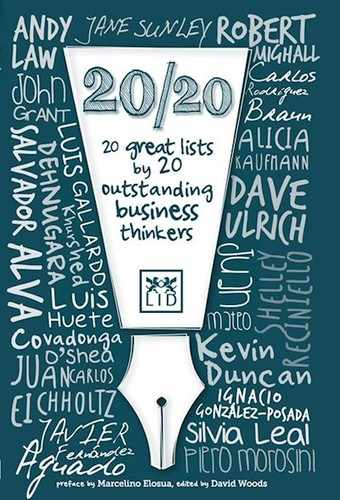2.
AVOIDING THE UNKNOWN
“There is nothing that man fears more than the touch of the unknown. He wants to see what is reaching toward him and to be able to recognize or at least classify it. Man always tends to avoid physical contact with anything strange.”
Diana: “Where should we begin?”, I ask the leadership team of a large not-for-profit. Twenty pairs of eyes stare back at me. The question is not rhetorical. This is often the first question I ask at the start of a leadership development program. It is meant to uncover the expectations that are placed on people like me, in an authority position, in situations high in uncertainty and complexity. Expectations that are normal, but that often get in the way of learning and growth. Although deceptively simple, this question always takes the group right to the edge.
“You are asking us this question? Surely you know the answer, you are running this program.” I say nothing and look around the room.“Start at the beginning,” quips a woman right in front of me. I keep silent, and sit down.
“Start with the end in mind,” says another.
The suggestions are starting to come thick and fast now.
“Where it makes sense.”
“With the agenda. How can we start without knowing what we are going to be working on over the next few days?”
“Are we clear on the purpose?”
“What about going round the room and hearing from everyone what they think?”
“Does it matter?”
“How will we decide?” asks a man to my right.
I continue to be silent.
I can sense the group starting to get impatient. Some people are shifting in their chairs, others are looking at me, waiting to see what I do.
I do nothing. “What do you want from us?” says a young woman in an exasperated voice.
“I’m more interested in what you want from me,” I answer.
I am not fulfilling the traditional, expected role of the person at the front of the room, and without a task and clear direction, the disequilibrium in the group is quickly increasing.
“I’m feeling frustrated, I don’t know what the goal is.”
“Why don’t you just take us on the journey?”
“There is no leadership here, no direction!” complains someone. In the absence of a clear structure, the conversation starts feeling circular and confusing.
After a while, silence descends on the group. All eyes are on me, waiting for me to do something. Although I’ve been in this situation before, the silence feels heavy and uncomfortable. I feel tempted to say something, but I hold steady. The void gets filled quickly.
“This won’t work in a large group like this. We’ll never agree to one answer. Let’s break into small groups and brainstorm,” suggests one of the more senior men in the group. There is an almost audible sigh of relief. Finally, something to do. The more structure-oriented people are immediately attracted to this proposal. They are starting to move their chairs, but there are some people in the group who are holding back, waiting for what will happen next. As there is no consensus in the group, nothing happens.
“If we don’t have a framework, we’re lost.”
“I feel like we’re poking around in the dark.”
Someone cracks a joke and the whole group laughs uproariously.
The tension dissipates for a few moments, but is short lived.
“It feels like we’re on the wrong track, but we don’t know what the right track is.”
I sense some people’s frustration now is going to a new level. Some people are leaning back in their chairs, looking absent or lost. A few people start talking amongst themselves, and I notice a couple are checking their phones.
“There’s nothing worse than this happening in a meeting... take the lead!” shouts a man to my left.
Time seems to slow down. I can hear the ticking of the clock on the wall. I don’t think I have much time now. I stand up, take the whiteboard marker, and start debriefing the session.
When we step into a new space, where we are faced with an uncertain and complex task, we inevitably come to the edge of our competence. We can recognize we are at the edge if there are changes in the energy of the situation - embarrassed laughter, fidgeting or boredom; if information is missing or keeps being repeated; or if there is nervousness, feelings of getting lost or not knowing what to do next49. When the disequilibrium increases, we naturally fall back on what we know. To avoid the uncomfortable feelings that arise outside of our comfort zone, we resort to tried and tested ways of organizing a group, design an agenda or create some structure. We look to those in decision-making roles to restore the equilibrium and provide us with clarity and safety, or we blame them for not ‘showing leadership’, or we disengage altogether from the current situation, finding other things to occupy us.
What is behind this avoidance of the unknown?
